WTA facing pushback on mulled Finals move to Saudi
Saudi Arabia denies human rights abuse accusations, citing national security laws
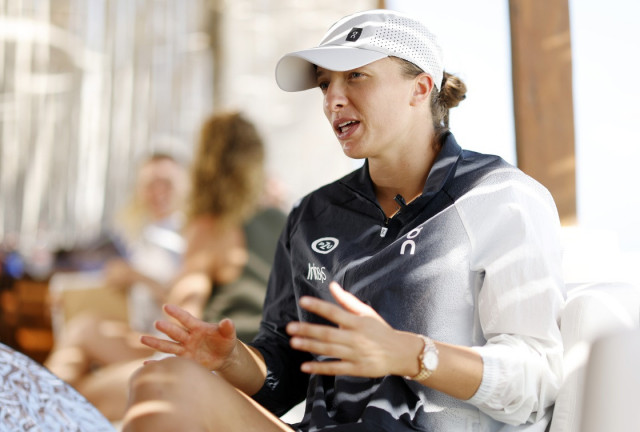
Little more than two years after the WTA was lauded by human rights advocates for suspending its tournaments in China, the women's tour risks angering those same activists as it mulls moving its season-ending Finals to Saudi Arabia.
Speculation about the event heading to the Gulf country has intensified and there has already been significant pushback from within the game, most notably from tennis greats Chris Evert and Martina Navratilova.
Saudi Arabia has invested heavily in sports like soccer, Formula One and golf over the last few years even as critics accuse the kingdom of using its Public Investment Fund to "sportswash" its human rights record.
"The human rights risks in Saudi Arabia to players, fans, and journalists are very serious," Minky Worden of Human Rights Watch told Reuters from New York.
"Sports such as tennis have only been allowed in the kingdom since 2018 for women and girls. Until that time, women and girls were not welcome in the stadium even to watch sports."
Saudi Arabia denies accusations of human rights abuses and says it protects its national security through its laws.
The WTA, whose chief Steve Simon said last year that Saudi Arabia presented "big issues", told Reuters it was in discussions with various groups over the 2024 edition of the Finals and that no decision had yet been made.
The men's ATP Tour announced its first foray into the Gulf country last August with a five-year deal for its Next Gen Finals, but Evert and Navratilova argued that the situation was different for women's tennis.
"We fully appreciate the importance of respecting diverse cultures and religions," the pair wrote in the Washington Post. "It's because of this, and not despite it, that we oppose the awarding of the tour's crown jewel tournament to Riyadh.”The WTA's values sit in stark contrast to those of the proposed host."
The future looked very different a few years ago when the WTA held the 2019 edition of the Finals with a prize pot of $14 million in Shenzhen, which had seen off rival bids from Prague, St Petersburg, Singapore and Manchester for a 10-year deal.
China's response to the COVID crisis forced the event to be cancelled the following year, though, and it was shifted to Guadalajara, Mexico in 2021. It was expected to return to Shenzhen from 2022 but the WTA suspended its billion dollar business in China due to concerns over the treatment of former doubles world number one Peng Shuai.
Human rights groups welcomed the WTA's stand and made their disappointment clear when the tour, which posted eight-figure losses in 2020 and 2021, performed a U-turn in April last year.
The Texas city of Fort Worth stepped in to host the 2022 Finals, drawing sparse crowds, and the WTA was expected to take the event to Saudi Arabia last year before announcing Cancun, Mexico as the venue less than two months from the start. It was not a success. Aryna Sabalenka, who won her second Australian Open title on Saturday, said that she felt "disrespected" by the standard of organisation, prompting Simon to write a letter to players admitting the event was "not perfect".
'AMAZING EXPERIENCE' Sabalenka said she would be happy to play the WTA Finals in Saudi Arabia if it was held there after an "amazing experience" during an exhibition event in Riyadh late last year.
"I expected something different. They treated us really well," Sabalenka said in Melbourne.
"It was a really amazing atmosphere in the stadium. They really like tennis. "The level of hospitality was definitely way better than it was in Cancun. Yeah, I'm happy to go there."
World number one Iga Swiatek urged caution, but did accept that engagement was a way to improve human rights. "It's not easy for women in these areas," Swiatek said.
"Obviously these countries also want to change and improve politically and sociologically." Former Grand Slam champion Caroline Wozniacki also saw it as an opportunity to spark change. "I obviously realise, the human rights and everything else, but I think when it's inevitable that they have so much money to put into sports," she said.
"When you're put in that situation, you can maybe make a change and do something positive." Plenty share the feeling that Saudi involvement in tennis is inevitable, and not necessarily a bad thing.
Rafa Nadal signed on as an ambassador of the Saudi Tennis Federation this month, while International Tennis Federation chief David Haggerty said his organisation was committed to growing the game everywhere. "We have 213 nations and we've got to make sure that we're doing what we can to grow grassroots tennis," Haggerty said.
"We'll work closely with the president of the federation to grow tennis in the country and the region."
Worden said before making a move into Saudi Arabia, tennis bodies needed to transparently perform due diligence on human rights issues and assess risks to its women athletes, fans and journalists. "There is a way for women's tennis to engage with Saudi Arabia and accept government investment," Worden added.
"But it has to be within a formal framework of human rights, to protect the rights of fans, players, journalists and the legacy of women's tennis as defending equality."

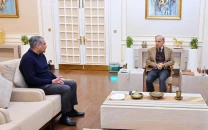

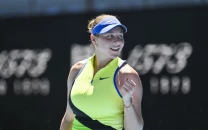
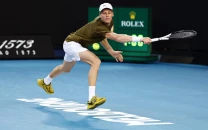
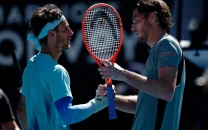












COMMENTS
Comments are moderated and generally will be posted if they are on-topic and not abusive.
For more information, please see our Comments FAQ